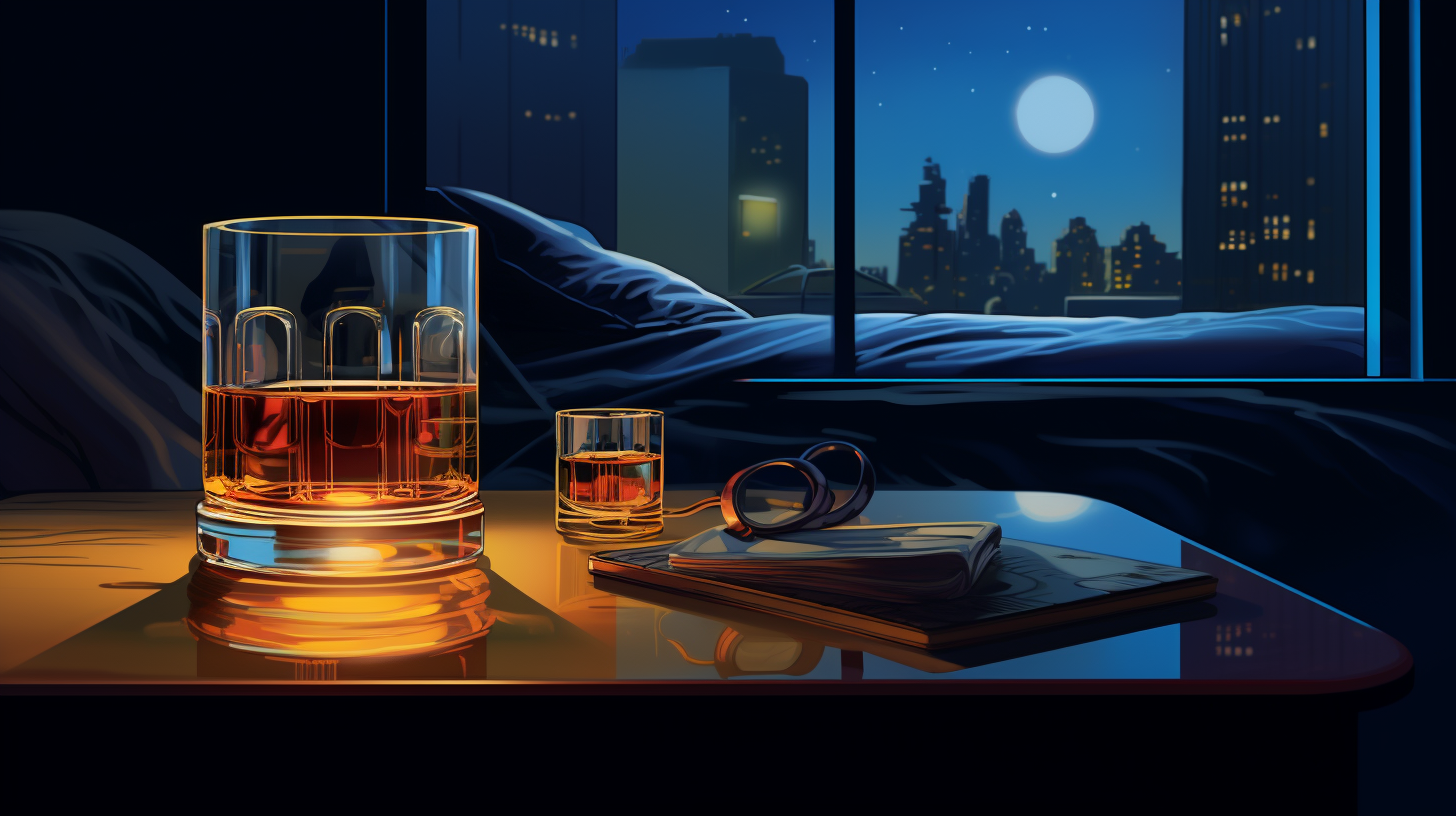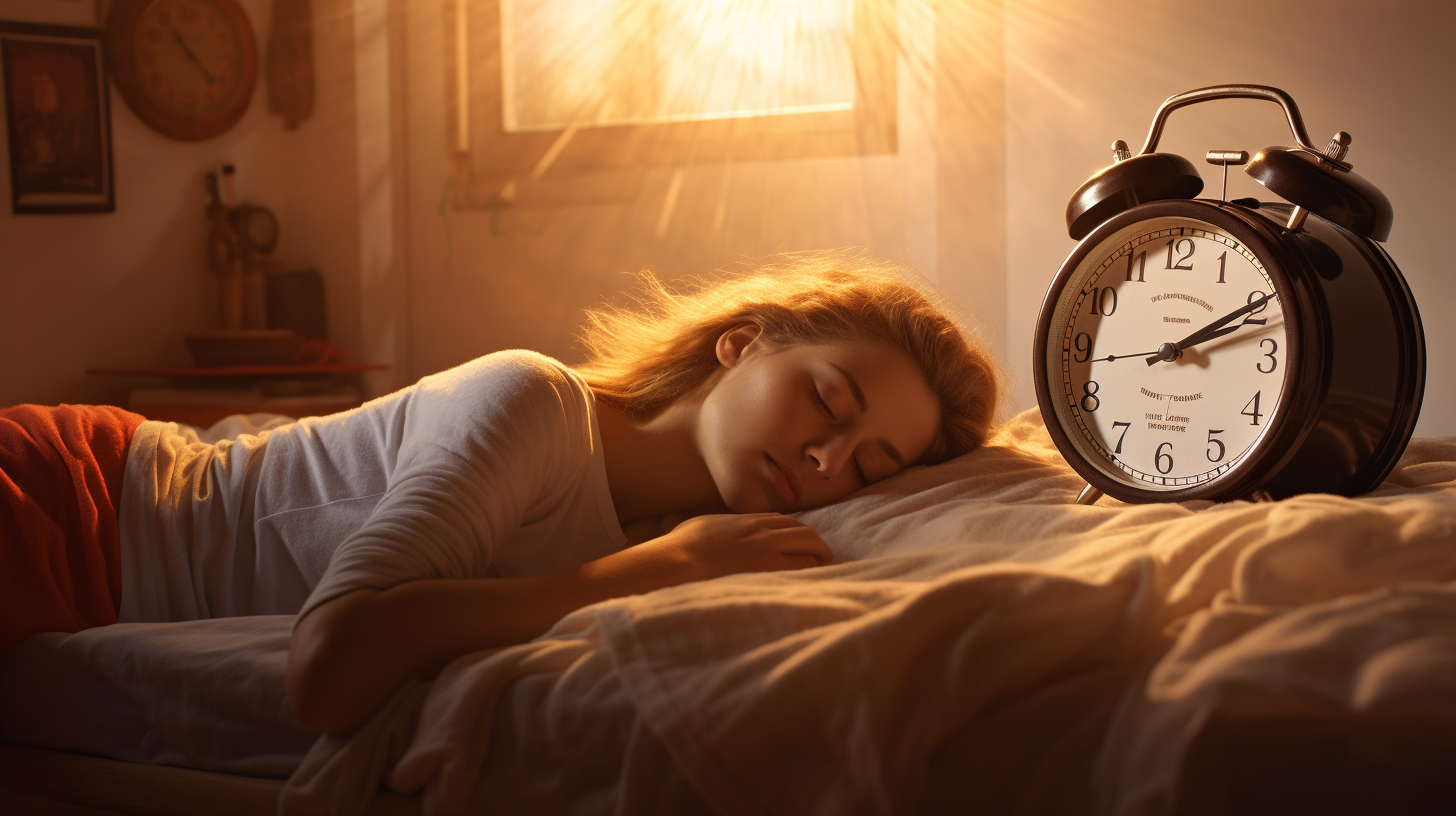You’re considering a nightcap before bed, right? You’re not alone. Many believe it helps you snooze faster.
But what’s the real impact on your sleep? It’s complicated. Alcohol can interrupt your sleep cycle and worsen sleep disorders.
Don’t fret, you don’t have to ditch your evening drink. This article will dissect how alcohol affects sleep, equipping you with the know-how to blend your love for a late-night beverage with a good night’s rest.
Let’s dive in.
How Alcohol Affects Sleep
You might notice that alcohol can make you drowsy, leading you to believe it can help improve your sleep. However, research indicates that alcohol, particularly consumed in large quantities, can negatively impact your sleep cycle.
Moreover, it can increase your risk of snoring and obstructive sleep apnea, conditions that can further degrade your sleep quality.
Can Drinking Alcohol Cause Snoring?
If you’re wondering whether drinking alcohol can cause snoring, the answer is a resounding yes. Alcohol relaxes the muscles in your throat, leading to an obstructed or collapsed airway, which in turn increases the vibration of the soft tissue in your throat as you breathe. This is what causes snoring.
Alcohol-induced snoring can disrupt your sleep and that of others, leading to daytime fatigue, irritability, and even relationship issues.
Regular snoring due to alcohol can increase your risk of developing obstructive sleep apnea, a serious sleep disorder.
Even if you don’t usually snore, drinking alcohol before sleep can make you prone to snoring and experiencing its negative impacts.
Consider these points next time you reach for that nightcap.
Alcohol and Sleep Disorders
If you’re turning to a nightcap to help you sleep, it’s crucial to understand how alcohol interacts with common sleep disorders.
For instance, alcohol might actually exacerbate symptoms of insomnia, a disorder characterized by difficulty falling or staying asleep.
Further, it can significantly worsen sleep apnea, a condition marked by disrupted breathing during sleep.
Alcohol and Insomnia
While it might seem like a nightcap can help you drift off to sleep, the truth is that alcohol can actually exacerbate insomnia and other sleep disorders. Alcohol, although a sedative, can disrupt your sleep cycle, reducing the quality of your sleep. As a result, you may find yourself feeling tired and unrested the next day.
Here’s how alcohol can affect your sleep:
Alcohol reduces rapid eye movement (REM) sleep, the stage of sleep where dreams occur and memory consolidation takes place. This can leave you feeling groggy and unfocused the next day.
Regular alcohol consumption can lead to higher tolerance, meaning you need more alcohol to feel its sedative effects, leading to a vicious cycle of drinking and disrupted sleep.
Binge drinking, in particular, can cause significant sleep disturbances and exacerbate chronic sleep problems, such as insomnia.
In essence, if you’re struggling with sleep, it’s best to reconsider that bedtime drink.
How to Sleep Better While Still Enjoying Alcohol
If you’re keen on enjoying your nightcap without sacrificing good sleep, consider these scientifically-backed strategies.
First, cease drinking at least 4 hours before bed to allow your body ample time to metabolize the alcohol.
In addition, limit your consumption to one or two drinks, implement solid sleep hygiene practices, and if you suspect a sleep disorder, don’t hesitate to seek testing.
Stop Drinking Alcohol at Least 4 Hours Before Bed
To enjoy your drink without compromising on a good night’s sleep, you should stop indulging in alcohol at least four hours before you hit the sack. This strategy ensures your body has sufficient time to metabolize the alcohol, eliminating its potential disruptive effects on your sleep cycle.
Feel rejuvenated: Wake up feeling refreshed and energetic, ready to tackle your day head-on.
Enhance your sleep quality: Enjoy deeper, more restorative sleep, essential for maintaining optimal health and wellbeing.
Ward off sleep disorders: Lower your risk of developing sleep disorders like insomnia and sleep apnea.
Limit Yourself to One or Two Alcoholic Drinks
In order to enjoy a drink without sacrificing your sleep quality, you should limit yourself to just one or two alcoholic beverages. Alcohol affects your sleep architecture, with even a moderate amount suppressing vital REM sleep and disrupting your sleep cycle.
Research suggests that a low to moderate consumption decreases sleep quality by 9.3% to 24%. This effect is exacerbated by the speed of consumption and your personal factors such as age, weight, and gender.
To mitigate these effects, time your drinks so you finish at least four hours before bedtime. This allows your body time to metabolize the alcohol, reducing its impact on your sleep.
Reduce Your Alcohol Intake
While you might enjoy the occasional drink, it’s crucial to reduce your overall alcohol intake to maintain both your sleep quality and overall health. Heavy drinking disrupts your sleep cycle, reduces REM sleep, and builds tolerance, leading to a dependency for sleep initiation. This creates a vicious cycle, deteriorating your sleep quality and health over time.
To sleep better while enjoying alcohol responsibly:
- Limit your alcohol intake to one or two drinks per day.
- Cease drinking at least four hours before bedtime.
- Substitute alcohol with sleep-promoting beverages like herbal teas or tart cherry juice.
Practice Good Sleep Hygiene
If you’re keen on enjoying a drink now and then but also value your sleep health, practicing good sleep hygiene can effectively balance the two. Start by limiting alcohol consumption to one or two drinks and cease drinking at least four hours before bedtime. This can help mitigate alcohol’s disruptive effects on your REM sleep and overall sleep quality.
Consider keeping a sleep journal to track your sleep patterns and any effects alcohol may have. Also, practice relaxing activities like yoga or meditation before bed to enhance sleep readiness.
Lastly, minimize screen time 60 to 90 minutes before hitting the hay. This can help your brain wind down, making it easier to fall asleep and stay asleep.
Get Tested for Sleep Disorders
So, you’ve been practicing good sleep hygiene and limiting your alcohol intake, but you’re still experiencing sleep issues? It might be time to consider getting tested for sleep disorders. Undiagnosed sleep disorders can go unnoticed and if alcohol is exacerbating your symptoms, it’s important to address this.
Here’s why you should consider getting tested:
Awareness: Many sleep disorder symptoms go unnoticed. You mightn’t be aware of chronic snoring or pauses in breathing during sleep.
Quality of Life: Untreated sleep disorders can lead to chronic fatigue, affecting your daily life and overall wellbeing.
Manageable with Treatment: Once diagnosed, many sleep disorders can be effectively managed with the right treatment.
Conclusion
So, should you sip that nightcap before bed? While it may seem like a quick route to dreamland, alcohol can disrupt your sleep cycle and exacerbate sleep disorders.
But don’t worry, you don’t have to ditch your evening drink entirely. By understanding alcohol’s impact on sleep, you can make smarter choices.
Enjoy in moderation, consider the timing, and remember, balance is key to maintaining both your evening ritual and a restful night’s sleep.
Frequently Asked Questions
Long-term use of alcohol as a sleep aid can compromise your sleep quality, disrupt your sleep cycle, and potentially lead to chronic sleep issues like insomnia. It can also exacerbate conditions like sleep apnea.
While you might fall asleep quicker, alcohol can disrupt your sleep patterns. It reduces REM sleep, leading to poorer quality rest. Higher intake only worsens these effects. So, it’s not ideal for sound sleep.
No specific type of alcohol’s proven to impact sleep quality less. All alcohol, regardless of type, can disrupt sleep patterns, reduce REM sleep, and impair sleep quality. It’s about quantity, not type.
Yes, you can reverse alcohol’s negative effects on sleep over time. Moderate consumption, good sleep hygiene, and healthy lifestyle choices can restore sleep quality. However, results vary based on individual response and habits.
No, alcohol’s impact on sleep doesn’t remain consistent across all age groups. As you age, your body’s ability to metabolize alcohol changes, potentially leading to more disrupted sleep patterns with alcohol consumption.

